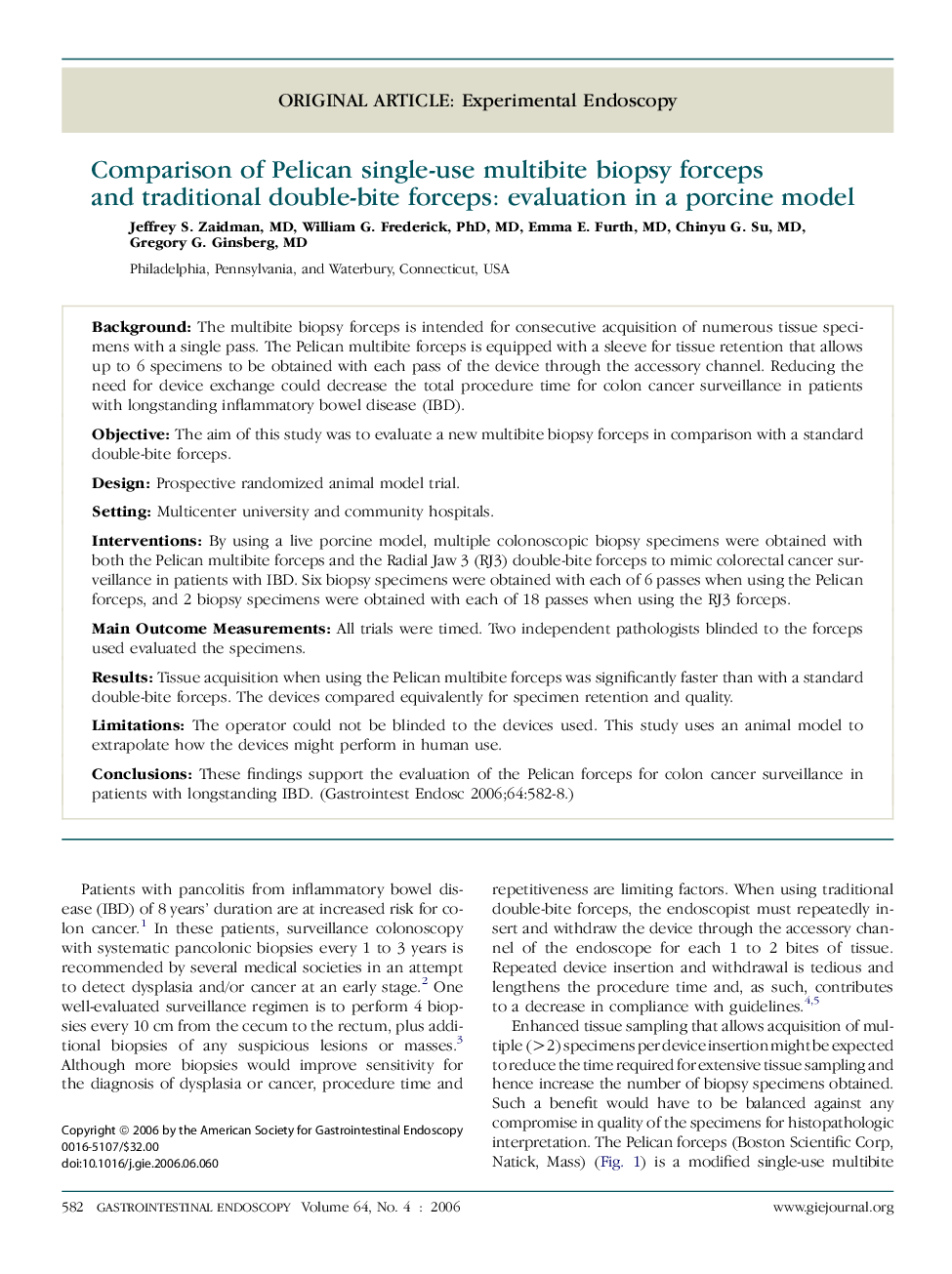| Article ID | Journal | Published Year | Pages | File Type |
|---|---|---|---|---|
| 3309552 | Gastrointestinal Endoscopy | 2006 | 7 Pages |
BackgroundThe multibite biopsy forceps is intended for consecutive acquisition of numerous tissue specimens with a single pass. The Pelican multibite forceps is equipped with a sleeve for tissue retention that allows up to 6 specimens to be obtained with each pass of the device through the accessory channel. Reducing the need for device exchange could decrease the total procedure time for colon cancer surveillance in patients with longstanding inflammatory bowel disease (IBD).ObjectiveThe aim of this study was to evaluate a new multibite biopsy forceps in comparison with a standard double-bite forceps.DesignProspective randomized animal model trial.SettingMulticenter university and community hospitals.InterventionsBy using a live porcine model, multiple colonoscopic biopsy specimens were obtained with both the Pelican multibite forceps and the Radial Jaw 3 (RJ3) double-bite forceps to mimic colorectal cancer surveillance in patients with IBD. Six biopsy specimens were obtained with each of 6 passes when using the Pelican forceps, and 2 biopsy specimens were obtained with each of 18 passes when using the RJ3 forceps.Main Outcome MeasurementsAll trials were timed. Two independent pathologists blinded to the forceps used evaluated the specimens.ResultsTissue acquisition when using the Pelican multibite forceps was significantly faster than with a standard double-bite forceps. The devices compared equivalently for specimen retention and quality.LimitationsThe operator could not be blinded to the devices used. This study uses an animal model to extrapolate how the devices might perform in human use.ConclusionsThese findings support the evaluation of the Pelican forceps for colon cancer surveillance in patients with longstanding IBD.
